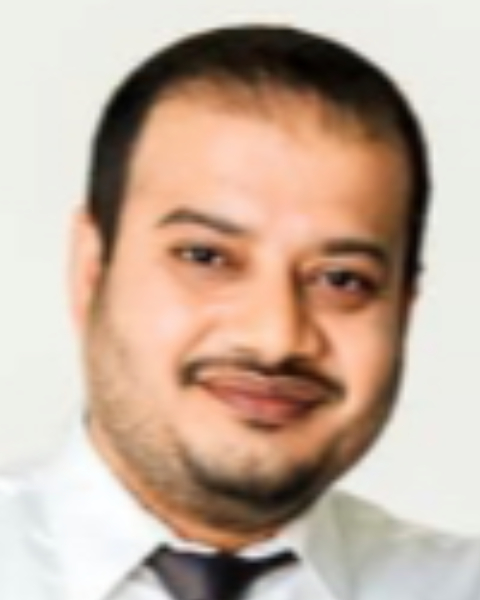PQA 03 - PQA 03 Gynecological Cancer, Pediatric Cancer, and Professional Development Poster Q&A
3531 - Assessment of Speaker Roles for Radiation Oncologists in ASCO Annual Conference Education Sessions
Monday, September 30, 2024
8:00 AM - 9:00 AM ET
Location: Hall C
Screen: 20

Ritesh Kumar, MD
Rutgers Cancer Institute of New Jersey
New Brunswick, NJ
Presenter(s)
R. Kumar1, A. Tabet2, and M. D. Mattes1; 1Department of Radiation Oncology, Rutgers Cancer Institute of New Jersey, New Brunswick, NJ, 2Rutgers University, New Brunswick, NJ
Purpose/Objective(s): Most medical and surgical oncologists in the United States have little to no formal training in radiation oncology (RO) during their undergraduate or graduate medical education. This is potentially detrimental to multidisciplinary care, given that patients depend on these other specialists for appropriate referrals to RO. Integration of RO content into the educational offerings of other specialty societies has the potential to mitigate this issue, however, there is little baseline data describing the extent to which this occurs. Our hypothesis in this study is that radiation oncologists are infrequent participants in American Society of Clinical Oncology (ASCO) annual meeting education sessions, but the probability of participation would increase for disease sites for which radiation oncologists are on the ASCO planning committee Materials/
Methods: The ASCO annual meeting program guides for 2021-2023 were reviewed on the ASCO website, along with the education committee track members in 2023. All speakers and disease-site tracks for “Education Sessions” and “Case-Based Panels,” which are the primary types of education-oriented sessions at the ASCO meeting, were recorded. Web searches were used to determine the specialty of each speaker and education committee member in each disease-site track. Descriptive statistics are reported. The Fisher’s Exact test was used for subgroup analyses.
Results: Over the three-year period, there were a total of 257 Education Sessions and 64 Case Based Panels. A RO speaker was included in 70 out of these 321 total sessions (21.8%). Participation of a RO speaker was significantly more common (p < 0.01) for case-based panels (n=25/64, 39.1%) than education sessions (n=45/257, 17.5%). Among 1091 total speakers, 77 were radiation oncologists (7.1%). There were two RO speakers involved in 7 of the sessions. Of the 22 total education committee tracks, 9 (40.9%) included a radiation oncologist, and 1 (4.5%) had a RO track leader. Among 114 annual meeting education committee members, 12 (10.5%) were radiation oncologists. Tracks with a RO committee member were more likely to include an RO speaker in their annual meeting education sessions, compared to tracks without a RO committee member (88.8% vs. 61.5%, respectively, p = 0.33), though this difference was not statistically significant.
Conclusion: Radiation oncologists are relatively uncommon speakers in ASCO annual meeting sessions. Volunteering to participate in planning committees, and submitting case-based panel proposals, may be reasonable approaches for radiation oncologists to get more involved and improve interdisciplinary education among oncologists in other specialties.
Purpose/Objective(s): Most medical and surgical oncologists in the United States have little to no formal training in radiation oncology (RO) during their undergraduate or graduate medical education. This is potentially detrimental to multidisciplinary care, given that patients depend on these other specialists for appropriate referrals to RO. Integration of RO content into the educational offerings of other specialty societies has the potential to mitigate this issue, however, there is little baseline data describing the extent to which this occurs. Our hypothesis in this study is that radiation oncologists are infrequent participants in American Society of Clinical Oncology (ASCO) annual meeting education sessions, but the probability of participation would increase for disease sites for which radiation oncologists are on the ASCO planning committee Materials/
Methods: The ASCO annual meeting program guides for 2021-2023 were reviewed on the ASCO website, along with the education committee track members in 2023. All speakers and disease-site tracks for “Education Sessions” and “Case-Based Panels,” which are the primary types of education-oriented sessions at the ASCO meeting, were recorded. Web searches were used to determine the specialty of each speaker and education committee member in each disease-site track. Descriptive statistics are reported. The Fisher’s Exact test was used for subgroup analyses.
Results: Over the three-year period, there were a total of 257 Education Sessions and 64 Case Based Panels. A RO speaker was included in 70 out of these 321 total sessions (21.8%). Participation of a RO speaker was significantly more common (p < 0.01) for case-based panels (n=25/64, 39.1%) than education sessions (n=45/257, 17.5%). Among 1091 total speakers, 77 were radiation oncologists (7.1%). There were two RO speakers involved in 7 of the sessions. Of the 22 total education committee tracks, 9 (40.9%) included a radiation oncologist, and 1 (4.5%) had a RO track leader. Among 114 annual meeting education committee members, 12 (10.5%) were radiation oncologists. Tracks with a RO committee member were more likely to include an RO speaker in their annual meeting education sessions, compared to tracks without a RO committee member (88.8% vs. 61.5%, respectively, p = 0.33), though this difference was not statistically significant.
Conclusion: Radiation oncologists are relatively uncommon speakers in ASCO annual meeting sessions. Volunteering to participate in planning committees, and submitting case-based panel proposals, may be reasonable approaches for radiation oncologists to get more involved and improve interdisciplinary education among oncologists in other specialties.
